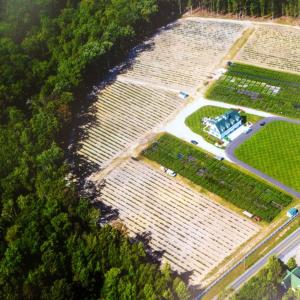Liked this new product. This variety was preferred by my kids, and makes for a good school snack!
I liked this new product, reasonably priced for a 4oz pack of uncured grassfed beef. These are not very spicy, although my kids preferred a mild variety.
Excellent pastured eggs from Savory Farms. You can really tell the difference between these and store-bought - better flavor, darker yolks. Highly recommended!
Check out our last Newsletter for 2016 :)
http://www.wwoof.com.au/images/newsletters/nl_92.pdf
Have you signed up for the WWOOF Newsletter yet?http://wwoof.com.au/wwoofers/newsletter-signup
Check out our last newsletter, you can have this delivered straight to your email inbox for free! Sign up now &never miss an issue!
http://www.wwoof.com.au/images/newsletters/nl_92.pdf
Want to join our community? Enrollment for the 2017 season has begun! Signup before March 1st for early bird pricing.
And we are also offering a chance to win a a free farm share to those helping with our gofundme campaign! For every $50 you donate to our fund, you will be entered to win a free full share for the 2017 season. A winner will be picked by March 1st and I email you if you have won!
Donate here: https://www.gofundme.com/oneacrefarm
2016 will be known to Maryland beekeepers as another year of extremely heavy losses.
2016 has been extremely challenging for our managed honeybee colonies here in Maryland. According to BIP (Bee Informed Partnership) 2016 is the year that losses exceeded 56%, and over a 3 year average, Maryland beekeepers have lost 54% of their total colonies. Maryland has approximately 14,000+ registered honeybee colonies according to Maryland State Ag statistics. The average replacement costs per colony is $150, replacement colonies range from $100/package to $200/nuc. This means that beekeepers in Maryland spend over $1.13MILLION every year to replace approximately 7,600 lost registered honeybee colonies. This does not include lost revenue, lost labor, or losses in potential business growth that would otherwise be possible by splitting healthy colonies. There are multiple, complex reasons for these losses, among them include, but are not limited to the following situations. Forage is the basis of a healthy colony’s immune system. Yet, most areas of the state saw very low levels of abundant natural forage and rainfall this year adversely affecting the colonies’ immunity. Thus, colonies with compromised immune systems succumb to the ravages of mites, viruses, and bacterial infections. To add to this, many beekeepers have seen an increase in pesticide use in the form of lawn and yard spraying, compounded by municipal and private responses to Zika Virus in the form of broad spectrum mosquito spraying. Moreover, summer queen failures have become a chronic problem in Maryland, even including queen failures that occur within the first summer after a colony is established, which, historically, would be considered a rarity. Furthermore, the translocation of honeybee colonies is highly problematic as colonies are unable to easily or fully integrate into the environment into which they have been transported.
If managed honeybee losses are this high, how do we think that wild native bee populations are fairing? Managed populations are the only populations to which beekeepers have regular access. If managed honeybees are facing the difficulties mentioned above, then it is reasonable to assume that wild native bee populations are suffering in the same ways.
Dr. David Goulson, Elizabeth Nicholls, Cristina Botías, and Ellen L. Rotheray published their research findings in their article, Bee declines Driven by Combined Stress from Parasites, Pesticides, and Lack of Flowers, suggesting several possible ways to mitigate managed honeybee colony losses:
"Bees are subject to numerous pressures in the modern world. The abundance and diversity of flowers has declined; bees are chronically exposed to cocktails of agrochemicals, and they are simultaneously exposed to novel parasites accidentally spread by humans.
Climate change is likely to exacerbate these problems in the future. Stressors do not act in isolation; for example, pesticide exposure can impair both detoxification mechanisms and immune responses, rendering bees more susceptible to parasites. It seems certain that
chronic exposure to multiple interacting stressors is driving honey bee colony losses and declines of wild pollinators, but such interactions are not addressed by current regulatory procedures, and studying these interactions experimentally poses a major challenge. In the meantime, taking steps to reduce stress on bees would seem prudent; incorporating flower-rich habitat into farmland, reducing pesticide use through adopting more sustainable farming methods, and enforcing effective quarantine measures on bee movements are all practical measures that should be adopted. Effective monitoring of wild pollinator populations is urgently needed to inform management strategies into the future.”
Beekeepers here in Maryland have very tough decisions to make. Our current track record for managed honeybee losses is abysmal, in fact the entire Mid-Atlantic region is suffering from catastrophic honeybee losses in managed colonies. Do we make much needed corrections to our management of our colonies or pursue the “same ol' same ol'” and continue to pay for replacement colonies, which in many cases only exacerbates the situation?
We can make things better for pollinators and give them the best possible chance for survival, but in order to do that, we must all act together to see those changes come to fruition.
Bill Castro
Beefriendlyapiary.com
2016 will be known to Maryland beekeepers as another year of extremely heavy losses.
2016 has been extremely challenging for our managed honeybee colonies here in Maryland. According to BIP (Bee Informed Partnership) 2016 is the year that losses exceeded 56%, and over a 3 year average, Maryland beekeepers have lost 54% of their total colonies. Maryland has approximately 14,000+ registered honeybee colonies according to Maryland State Ag statistics. The average replacement costs per colony is $150, replacement colonies range from $100/package to $200/nuc. This means that beekeepers in Maryland spend over $1.13MILLION every year to replace approximately 7,600 lost registered honeybee colonies. This does not include lost revenue, lost labor, or losses in potential business growth that would otherwise be possible by splitting healthy colonies. There are multiple, complex reasons for these losses, among them include, but are not limited to the following situations. Forage is the basis of a healthy colony’s immune system. Yet, most areas of the state saw very low levels of abundant natural forage and rainfall this year adversely affecting the colonies’ immunity. Thus, colonies with compromised immune systems succumb to the ravages of mites, viruses, and bacterial infections. To add to this, many beekeepers have seen an increase in pesticide use in the form of lawn and yard spraying, compounded by municipal and private responses to Zika Virus in the form of broad spectrum mosquito spraying. Moreover, summer queen failures have become a chronic problem in Maryland, even including queen failures that occur within the first summer after a colony is established, which, historically, would be considered a rarity. Furthermore, the translocation of honeybee colonies is highly problematic as colonies are unable to easily or fully integrate into the environment into which they have been transported.
If managed honeybee losses are this high, how do we think that wild native bee populations are fairing? Managed populations are the only populations to which beekeepers have regular access. If managed honeybees are facing the difficulties mentioned above, then it is reasonable to assume that wild native bee populations are suffering in the same ways.
Dr. David Goulson, Elizabeth Nicholls, Cristina Botías, and Ellen L. Rotheray published their research findings in their article, Bee declines Driven by Combined Stress from Parasites, Pesticides, and Lack of Flowers, suggesting several possible ways to mitigate managed honeybee colony losses:
"Bees are subject to numerous pressures in the modern world. The abundance and diversity of flowers has declined; bees are chronically exposed to cocktails of agrochemicals, and they are simultaneously exposed to novel parasites accidentally spread by humans.
Climate change is likely to exacerbate these problems in the future. Stressors do not act in isolation; for example, pesticide exposure can impair both detoxification mechanisms and immune responses, rendering bees more susceptible to parasites. It seems certain that
chronic exposure to multiple interacting stressors is driving honey bee colony losses and declines of wild pollinators, but such interactions are not addressed by current regulatory procedures, and studying these interactions experimentally poses a major challenge. In the meantime, taking steps to reduce stress on bees would seem prudent; incorporating flower-rich habitat into farmland, reducing pesticide use through adopting more sustainable farming methods, and enforcing effective quarantine measures on bee movements are all practical measures that should be adopted. Effective monitoring of wild pollinator populations is urgently needed to inform management strategies into the future.”
Beekeepers here in Maryland have very tough decisions to make. Our current track record for managed honeybee losses is abysmal, in fact the entire Mid-Atlantic region is suffering from catastrophic honeybee losses in managed colonies. Do we make much needed corrections to our management of our colonies or pursue the “same ol' same ol'” and continue to pay for replacement colonies, which in many cases only exacerbates the situation?
We can make things better for pollinators and give them the best possible chance for survival, but in order to do that, we must all act together to see those changes come to fruition.
Bill Castro
Beefriendlyapiary.com
Buy the best organic blueberry plants at the lowest prices online and large organic blueberry bushes. We have all sizes or organic blueberries plants at DiMeo Farms that are on sale now. CALL (609) 561-5905 to get a fast shipping quote, or schedule a pick-up appointment. Start saving money now and grow your own organic blueberries for free at home in your own backyard blueberry garden. Buy the best tasting and best producing blueberry plant varieties that include our ORGANIC, Non-GMO, Heirloom blueberry plant types. DiMeo Farms carries forward well over 100 years of blueberry growing history in the DiMeo family. One of our blueberry farm experts can give you free blueberry planting advice and expert tips on how to grow the big organic blueberry bushes as part of your sustainable edible landscaping so you can grow your own blueberries at home, not just to save money but for your good health and food security. www.DiMeoFarms.com/blueberry-plants
Excellent milk and meat products from Hensing Farm. I am a repeat customer!






